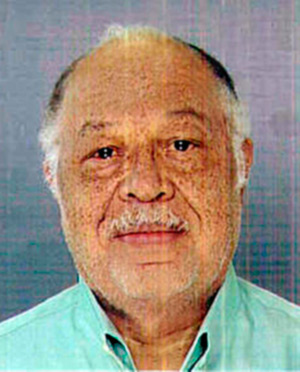
A Philadelphia jury May 13 found abortionist Kermit Gosnell guilty of murder in the deaths of three babies born alive during abortions and acquitted him of a fourth similar charge. He also was convicted of involuntary manslaughter in the death by a drug overdose of a patient who had an abortion.
Gosnell, 72, was accused of snipping the spines of babies born alive during illegal late-term abortions. Pennsylvania law prohibits abortions after 24 weeks of gestation.
A few weeks earlier in the six-week trial, after the prosecution had rested its case, Judge Jeffrey Minehart of the Common Pleas Court, dismissed three other murder charges against Gosnell, saying they lacked evidence.
The same jury was to convene May 21 to consider Gosnell’s sentence. Prosecutors were seeking the death penalty.
Gosnell was arrested in 2011 and charged with seven counts of infanticide and one count of murder in the case of a woman from Virginia who died during an abortion.
Several patients and former employees testified about squalid conditions at the clinic, described by some as “a house of horrors.”
Several former workers in the clinic, including Gosnell’s wife, Pearl, a cosmetologist by training, earlier pleaded guilty to charges including third-degree murder, racketeering and performing illegal, late-term abortions.
Prosecutors said one of the babies Gosnell killed was at nearly 30 weeks of gestation and was so big that Gosnell joked it could “walk to the bus,” reported The Associated Press.
The involuntary manslaughter charge came in the death of Karnamaya Mongar, 41, of Woodbridge, Va., who was given repeated doses of powerful drugs to induce labor and sedate her.
The jury also found Gosnell guilty of infanticide, racketeering and more than 200 violations of Pennsylvania laws, for performing abortions past 24 weeks or failing to counsel women seeking abortions 24 hours before providing the procedure.
He still faces federal drug charges over abuse of prescriptions for OxyContin and for letting staff members make out prescriptions to patients who paid cash.
The case against Gosnell took shape after a team of health inspectors and investigators looking into drug trade raided Gosnell’s clinic, known as the Women’s Medical Society, in February 2010.
A grand jury report that followed reported on filth throughout, including blood on the floor, cat feces on the stairs and surgical rooms that resembled a “bad gas station restroom.” The investigators gathered the remains of 45 fetuses stored in bags, milk jugs, juice cartons and cat food containers.
Gosnell’s license was suspended and he was arrested in January 2011, was originally charged with seven counts of first-degree murder in connection with late-term abortions.
For longtime pro-life activist Anita Usher, the trial put a spotlight on the cruelties of abortion as well as the contradiction in the law.
“When you see these babies that have been freshly born and their necks being snipped, you have to back that up and say, ‘Why is it wrong to snip their necks on the outside of that mother’s womb as opposed to snipping their necks while they’re still inside their mother’s womb?’” Usher said. “I think for the first time people have been forced to see the truth that it’s wrong on either side.”
John Jakubczyk, an attorney and past president of Arizona Right to Life, pointed out the mainstream media “had to be shamed into” coverage of the trial.
“These people were just totally ignoring what was happening,” Jakubczyk said.
Beyond that, he welcomed the opportunity for the world to see that “the trial represents the abortion industry at its finest with regard for women, profits, and the whole standard of care for the poor versus those who have money and those who are white…it shows a total disregard for the rule of law.”
Former employees of the embattled abortionist said that Gosnell’s white patients received better care under more hygienic conditions. Records indicate that hundreds of abortions were performed after the 24-week limit imposed by Pennsylvania state law.
“It is also interesting that the Gosnell situation represents the efforts by groups like Planned Parenthood to stop local, county and state officials from inspecting facilities and from providing laws that would protect women’s health,” Jakubczyk said.
In Arizona, the Mother’s Health and Safety Act, which prohibits abortion after 20 weeks, is opposed by Planned Parenthood and the Center for Reproductive Rights. The law, passed in 2012 and upheld by a federal judge, is now before the Ninth Circuit Court of Appeals.
Jakubczyk said the Gosnell case reflects a “continuation of government corruption” and a willingness to turn a blind eye toward the abortion industry. Although clinics are supposed to be inspected by government agencies, Gosnell’s facility went two decades without inspection.
In Arizona, Jakubczyk said, former Arizona abortion providers John Biskund and Brian Finkel were similarly “protected by the media and by government corruption.”
Biskund, convicted of manslaughter for the 1998 death of a patient following a botched abortion performed at 37 weeks, was sentenced to five years in prison. Finkel was convicted of sexual assault charges in connection with his Phoenix abortion practice and sentenced to nearly 35 years in prison.
Christine Accurso, executive director of 1st Way Pregnancy Clinic, said that when women feel supported in their pregnancy, they are less likely to abort their babies. Beyond that, she said, she’s noticed something else as she counsels clients.
“They don’t know the truth about abortion,” Accurso said. When they find out about some of the side effects and complications involved with abortion, Accurso said, they begin to consider giving birth.
– – –
Catholic News Service contributed to this story.






